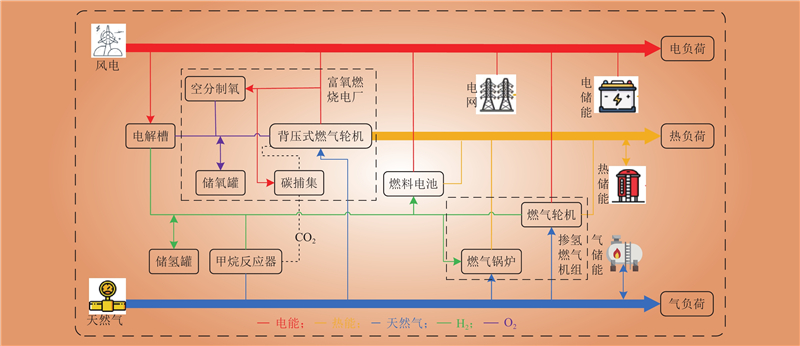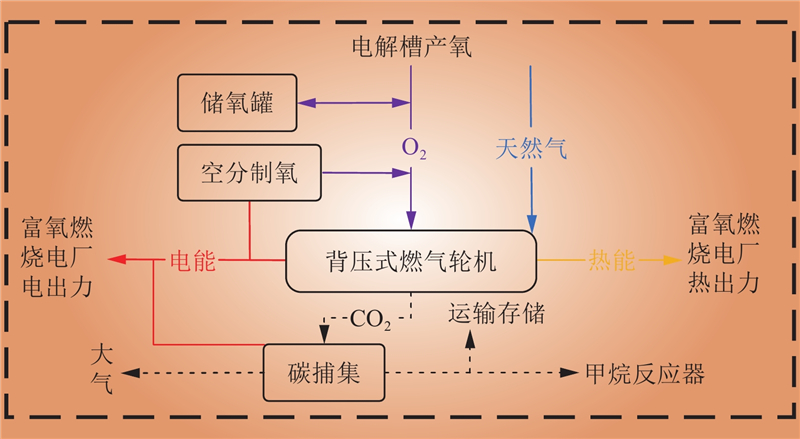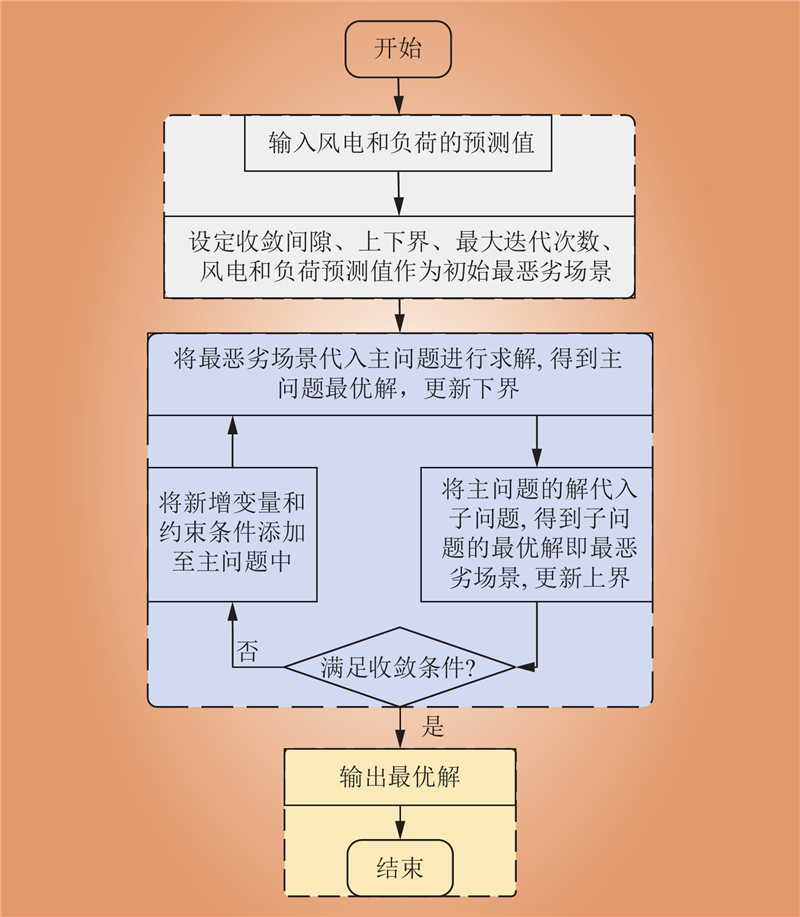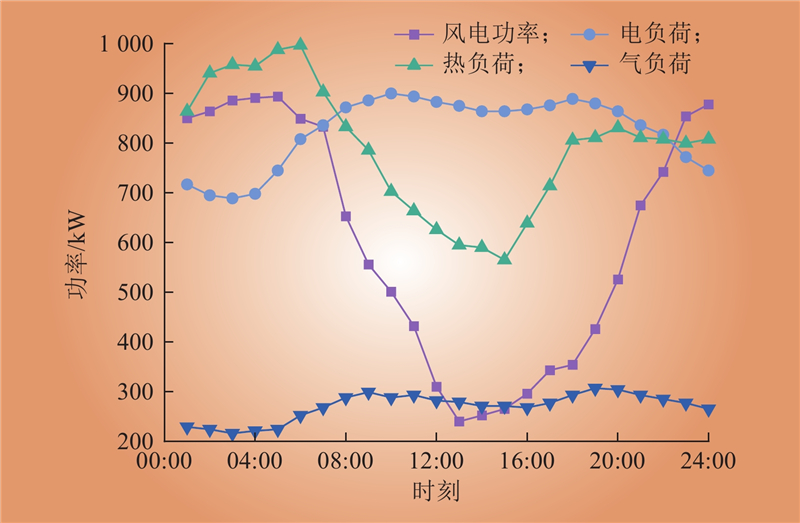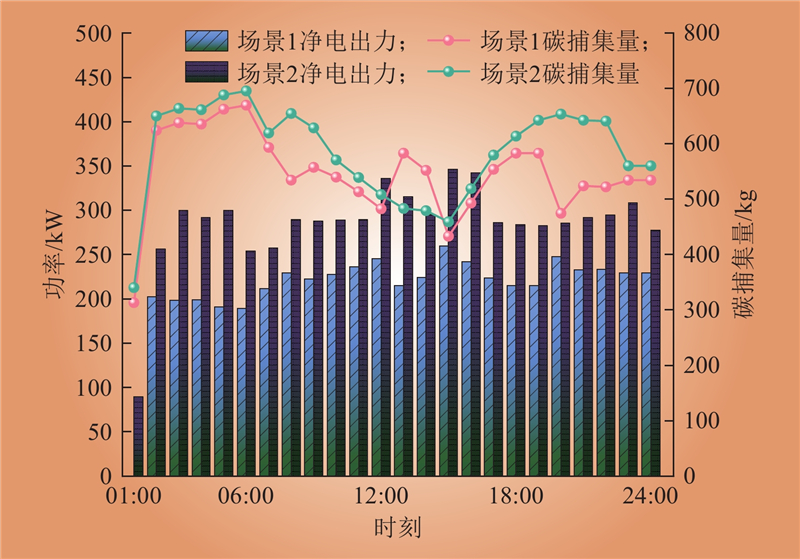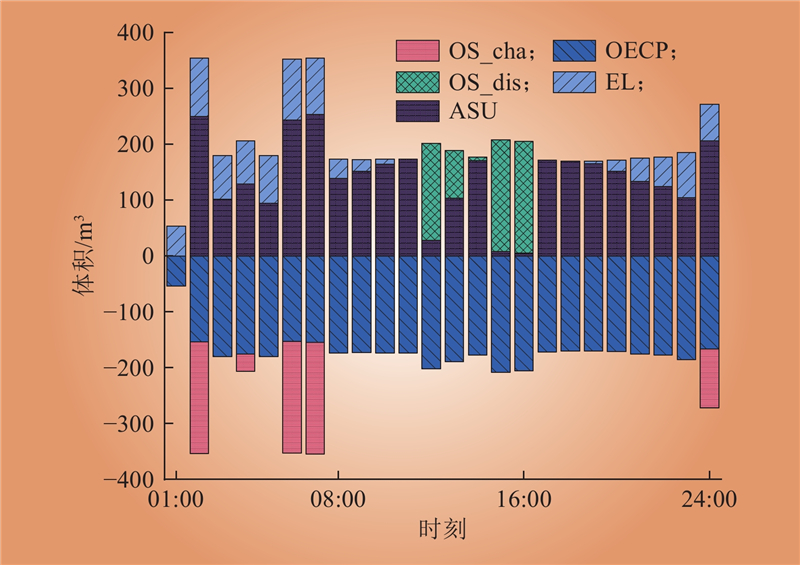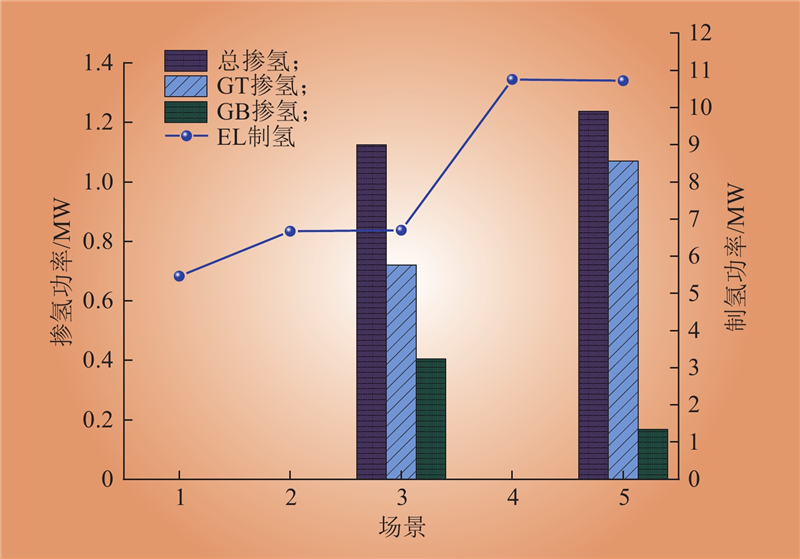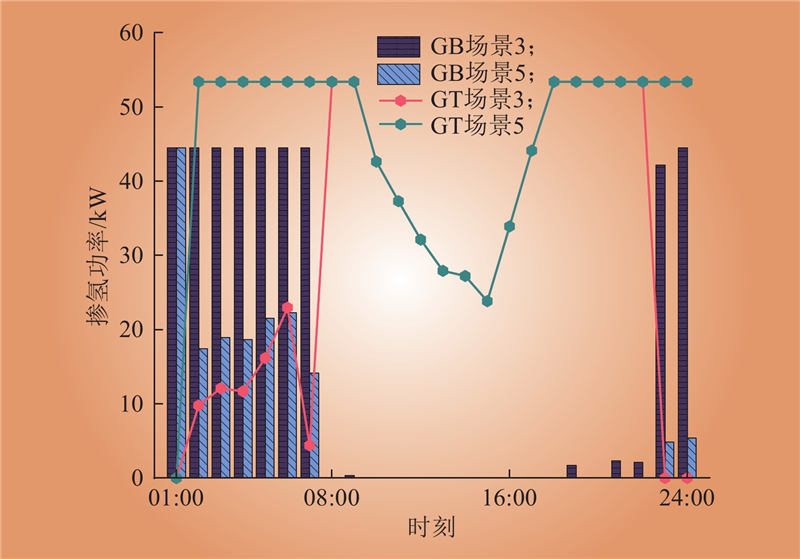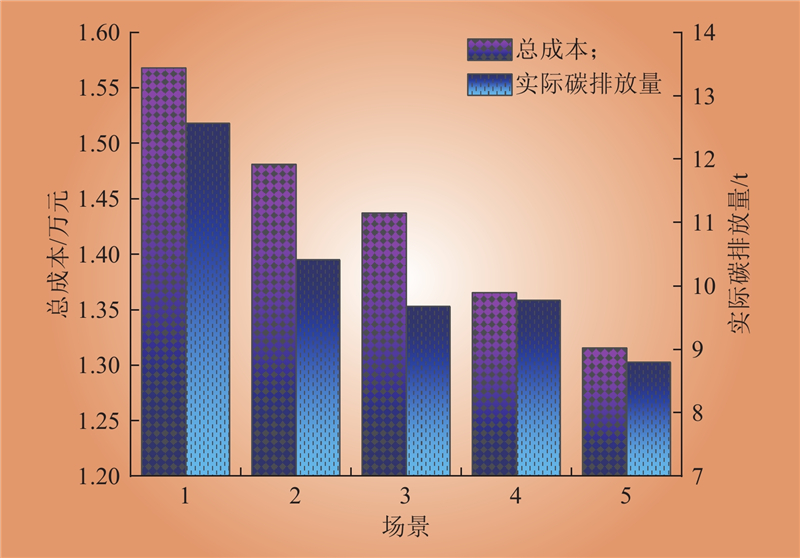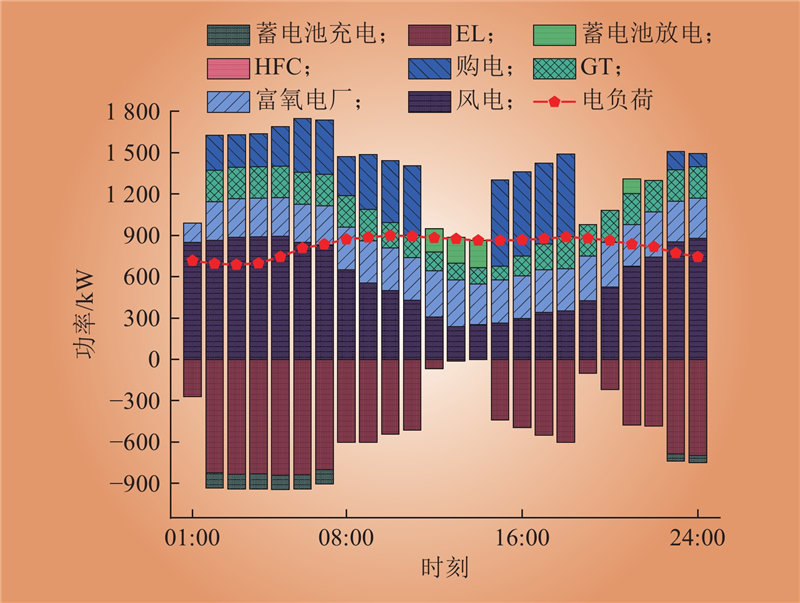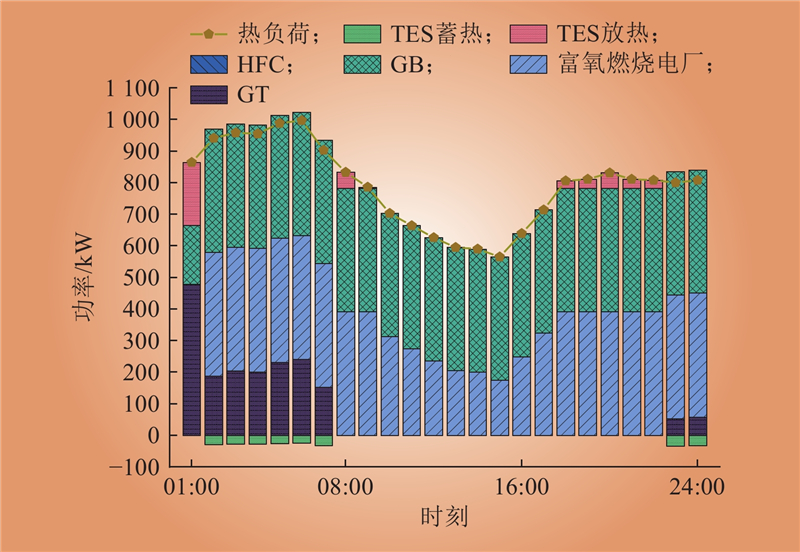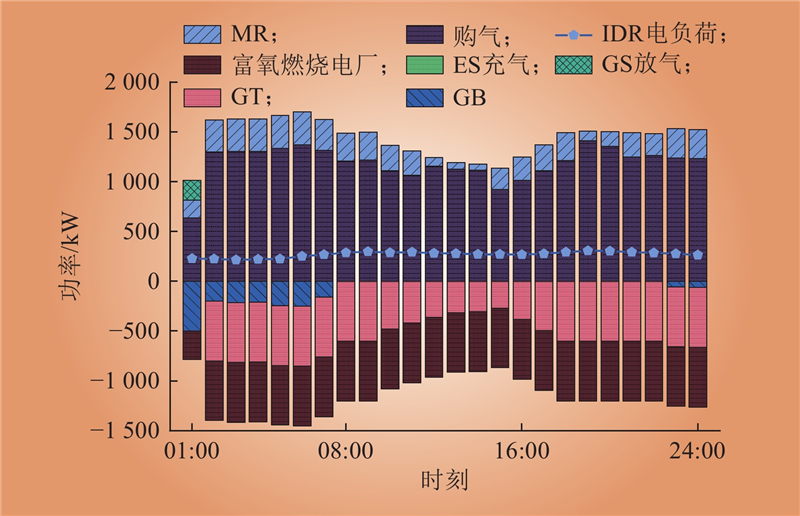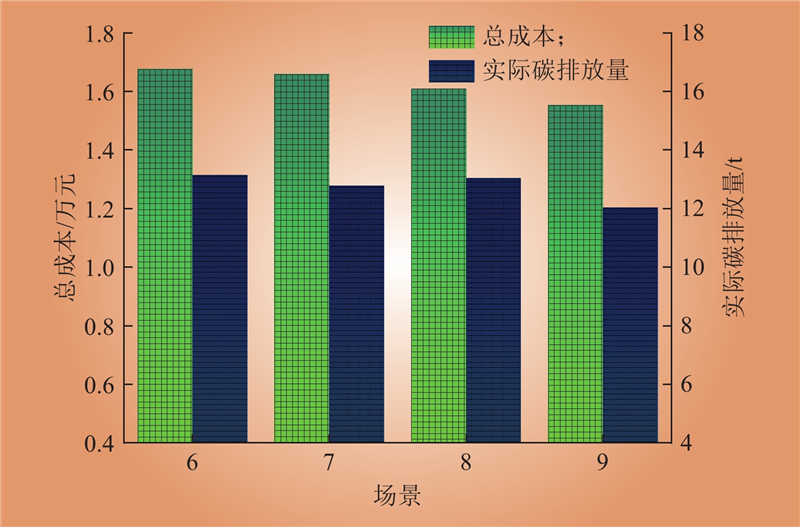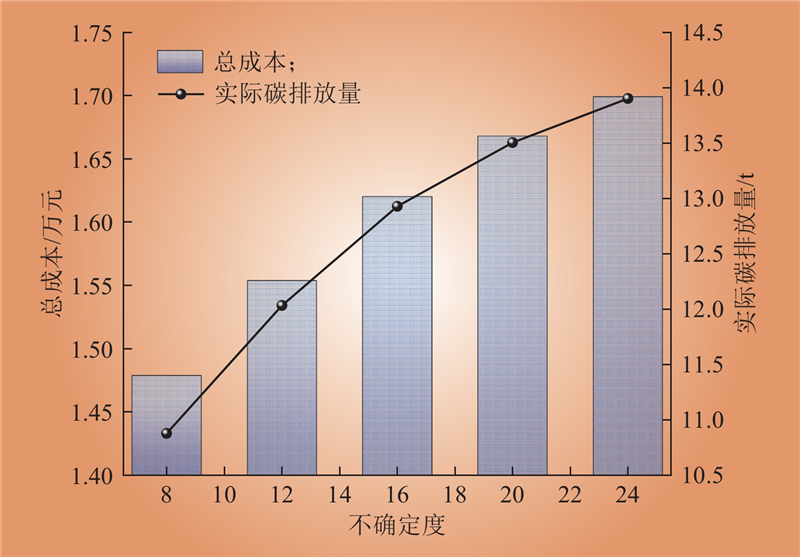| 1 |
李双成, 王巧玲, 刘迎陆. “双碳”目标下的中国可再生能源发展: 机遇与挑战[J]. 气候与环境研究, 2024, 29 (3): 390- 398.
|
|
LI Shuangcheng, WANG Qiaoling, LIU Yinglu. Renewable energy development in China under dual carbon goals: opportunities and challenges[J]. Climatic and Environment Research, 2024, 29 (3): 390- 398.
|
| 2 |
XIANG L, LIN Q, ZHU S, et al. Extended matrix modeling of integrated energy systems considering network dynamic characteristics and source–load uncertainty[J]. Energy, 2024, 312, 133382.
|
| 3 |
袁越, 苗安康, 吴涵, 等. 低碳综合能源系统研究框架与关键问题研究综述[J]. 高电压技术, 2024, 50 (9): 4019- 4036.
|
|
YUAN Yue, MIAO Ankang, WU Han, et al. Review of the research framework and key issues for low-carbon integrated energy system[J]. High Voltage Engineering, 2024, 50 (9): 4019- 4036.
|
| 4 |
HUANG Q, YAO J, HU Y, et al. Integrating compressed CO2 energy storage in an oxy-coal combustion power plant with CO2 capture[J]. Energy, 2022, 254, 124493.
|
| 5 |
崔杨, 曾鹏, 仲悟之, 等. 考虑富氧燃烧技术的电–气–热综合能源系统低碳经济调度[J]. 中国电机工程学报, 2021, 41 (2): 592- 608.
|
|
CUI Yang, ZENG Peng, ZHONG Wuzhi, et al. Low-carbon economic dispatch of electro-gas-thermal integrated energy system based on oxy-combustion technology[J]. Proceedings of the CSEE, 2021, 41 (2): 592- 608.
|
| 6 |
贠韫韵, 张大海, 王小君, 等. 考虑光热电站及富氧燃烧捕集技术的电热气综合能源系统低碳运行优化[J]. 电工技术学报, 2023, 38 (24): 6709- 6726.
|
|
YUAN Yunyun, ZHANG Dahai, WANG Xiaojun, et al. Low-carbon operational optimization of integrated electricity-heat-gas energy system considering concentrating solar power plant and oxygen-enriched combustion capture technology[J]. Transactions of China Electrotechnical Society, 2023, 38 (24): 6709- 6726.
|
| 7 |
杨周义, 邢海军, 江伟建, 等. 基于低碳需求响应的含煤制氢与碳捕集电厂的综合能源系统优化调度[J]. 电力自动化设备, 2024, 44 (4): 25- 32.
|
|
YANG Zhouyi, XING Haijun, JIANG Weijian, et al. Optimal scheduling of integrated energy system with coal-to-hydrogen and carbon capture power plant based on low-carbon demand response[J]. Electric Power Automation Equipment, 2024, 44 (4): 25- 32.
|
| 8 |
杨海柱, 白亚楠, 张鹏, 等. 考虑富氧燃烧碳捕集技术和源荷双侧响应的综合能源系统优化调度[J]. 中国电力, 2024, 57 (8): 227- 240.
|
|
YANG Haizhu, BAI Yanan, ZHANG Peng, et al. Integrated energy system optimal dispatch considering oxy-fuel combustion carbon capture technology and source-load bilateral response[J]. Electric Power, 2024, 57 (8): 227- 240.
|
| 9 |
倪志, 文中, 王灿, 等. 含光热MRH和燃气掺氢的综合能源系统优化运行[J]. 广西师范大学学报(自然科学版), 2024, 42 (1): 54- 66.
|
|
NI Zhi, WEN Zhong, WANG Can, et al. Optimal operation of integrated energy system with photothermal MRH and gas doping[J]. Journal of Guangxi Normal University (Natural Science Edition), 2024, 42 (1): 54- 66.
|
| 10 |
孙昊翔, 段俊东. 考虑富氧燃烧电厂与掺氢燃气设备联合运行的综合能源系统优化调度[J]. 热力发电, 2025, 54 (1): 78- 87.
|
|
SUN Haoxiang, DUAN Jundong. Optimal dispatch of integrated energy system considering joint operation of oxy-fuel combustion power plants and hydrogen doped gas equipment[J]. Thermal Power Generation, 2025, 54 (1): 78- 87.
|
| 11 |
张栋顺, 全恒立, 谢桦, 等. 考虑碳交易机制与氢混天然气的园区综合能源系统调度策略[J]. 中国电力, 2024, 57 (2): 183- 193.
|
|
ZHANG Dongshun, QUAN Hengli, XIE Hua, et al. Dispatching strategy of park-level integrated energy system considering carbon trading mechanism and hydrogen blending natural gas[J]. Electric Power, 2024, 57 (2): 183- 193.
|
| 12 |
高雅, 徐艳春, 张涛, 等. 计及EV协调充电及奖惩阶梯碳交易的多微网系统优化调度[J]. 电力建设, 2025, 46 (1): 174- 188.
|
|
GAO Ya, XU Yanchun, ZHANG Tao, et al. Multi-microgrid system optimization scheduling including electric vehicle coordinated charging and punishment ladder carbon trading[J]. Electric Power Construction, 2025, 46 (1): 174- 188.
|
| 13 |
YUN Y, ZHANG D, YANG S, et al. Low-carbon optimal dispatch of integrated energy system considering the operation of oxy-fuel combustion coupled with power-to-gas and hydrogen-doped gas equipment[J]. Energy, 2023, 283, 129127.
|
| 14 |
王大兴, 宁妍, 汪敬培, 等. 构建新型电力系统背景下的微电网鲁棒简化建模[J]. 中国电力, 2024, 57 (1): 148- 157.
|
|
WANG Daxing, NING Yan, WANG Jingpei, et al. Robust simplified modeling of microgrid in the context of constructing new power systems[J]. Electric Power, 2024, 57 (1): 148- 157.
|
| 15 |
MA Y, LI Y, MEI H, et al. Potential way to plan China's power system (2021–2050) for climate change mitigation[J]. Renewable Energy, 2024, 225, 120257.
|
| 16 |
朱继忠, 董瀚江, 李盛林, 等. 基于分布式新能源集群的微能源网优化调度综述[J]. 中国电机工程学报, 2024, 44 (20): 7952- 7970.
|
|
ZHU Jizhong, DONG Hanjiang, LI Shenglin, et al. Review of optimal dispatching for the aggregation of micro-energy grids based on distributed new energy[J]. Proceedings of the CSEE, 2024, 44 (20): 7952- 7970.
|
| 17 |
刘一欣, 郭力, 王成山. 微电网两阶段鲁棒优化经济调度方法[J]. 中国电机工程学报, 2018, 38 (14): 4013- 4022, 4307.
|
|
LIU Yixin, GUO Li, WANG Chengshan. Economic dispatch of microgrid based on two stage robust optimization[J]. Proceedings of the CSEE, 2018, 38 (14): 4013- 4022, 4307.
|
| 18 |
李欣, 陈英彰, 李涵文, 等. 考虑碳交易的电-热综合能源系统两阶段鲁棒优化低碳经济调度[J]. 电力建设, 2024, 45 (6): 58- 69.
|
|
LI Xin, CHEN Yingzhang, LI Hanwen, et al. Two-stage robust optimization low-carbon economic dispatch for electricity-thermal integrated energy system considering carbon trade[J]. Electric Power Construction, 2024, 45 (6): 58- 69.
|
| 19 |
宁萌萌, 冯庆斌, 王丽莎, 等. 含海上风电的虚拟电厂参与日前电能量市场及日内调度的两阶段协同优化[J]. 油气与新能源, 2024, 36 (6): 53- 62, 74.
|
|
NING Mengmeng, FENG Qingbin, WANG Lisha, et al. Two-stage collaborative optimization involving virtual power plant with offshore wind power participation in the day-ahead energy market and intra-day scheduling[J]. Petroleum and New Energy, 2024, 36 (6): 53- 62, 74.
|
| 20 |
岳文全, 姚方, 文福拴. 考虑光热电站的电热氢综合能源系统协调优化策略[J]. 分布式能源, 2023, 8 (4): 29- 39.
|
|
YUE Wenquan, YAO Fang, WEN Fushuan. Coordinated optimization strategy for electric-heat-hydrogen integrated energy system considering concentrating solar power[J]. Distributed Energy, 2023, 8 (4): 29- 39.
|
| 21 |
齐彩娟, 陈宝生, 韦冬妮, 等. 考虑主从博弈定价模式的共享储能分布鲁棒优化配置方法研究[J]. 中国电力, 2024, 57 (7): 40- 53.
|
|
QI Caijuan, CHEN Baosheng, WEI Dongni, et al. Distributionally robust optimal configuration for shared energy storage based on stackelberg game pricing model[J]. Electric Power, 2024, 57 (7): 40- 53.
|
| 22 |
辛晓钢, 李强, 张谦, 等. 计及多灵活性资源的虚拟电厂两阶段鲁棒优化调度方法[J]. 热能动力工程, 2024, 39 (9): 113- 122.
|
|
XIN Xiaogang, LI Qiang, ZHANG Qian, et al. A Two-stage robust optimal scheduling method for virtual power plants taking into account multi-flexibility resources[J]. Journal of Engineering for Thermal Energy and Power, 2024, 39 (9): 113- 122.
|
| 23 |
李贻涛, 李可, 邢晓敏, 等. 考虑富氧燃烧技术的综合能源系统优化调度[J]. 电网与清洁能源, 2024, 40 (8): 1- 10, 17.
|
|
LI Yitao, LI Ke, XING Xiaomin, et al. Optimal Scheduling of the integrated energy system considering oxy-fuel combustion technology[J]. Power System and Clean Energy, 2024, 40 (8): 1- 10, 17.
|
| 24 |
王守文, 叶金根, 杨天萌, 等. 考虑富氧燃烧技术与绿证-碳配额等价交互的综合能源低碳经济调度[J]. 电网技术, 2025, 49 (2): 631- 641.
|
|
WANG Shouwen, YE Jingen, YANG Tianmeng, et al. Integrated energy low carbon economic dispatch considering oxyfuel technology and green certificates-carbon allowance equivalent interactions[J]. Power System Technology, 2025, 49 (2): 631- 641.
|
| 25 |
陈登勇, 刘方, 刘帅. 基于阶梯碳交易的含P2G-CCS耦合和燃气掺氢的虚拟电厂优化调度[J]. 电网技术, 2022, 46 (6): 2042- 2054.
|
|
CHEN Dengyong, LIU Fang, LIU Shuai. Optimization of virtual power plant scheduling coupling with P2G-CCS and doped with gas hydrogen based on stepped carbon trading[J]. Power System Technology, 2022, 46 (6): 2042- 2054.
|
| 26 |
YANG M, LIU Y. A two-stage robust configuration optimization framework for integrated energy system considering multiple uncertainties[J]. Sustainable Cities and Society, 2024, 101, 105120.
|
| 27 |
ZHANG L, HUA D, ZHENG J H, et al. Two-stage robust optimization for optimal operation of hybrid hydrogen–electricity storage system considering ladder-type carbon trading[J]. Journal of Energy Storage, 2024, 100, 113473.
|


